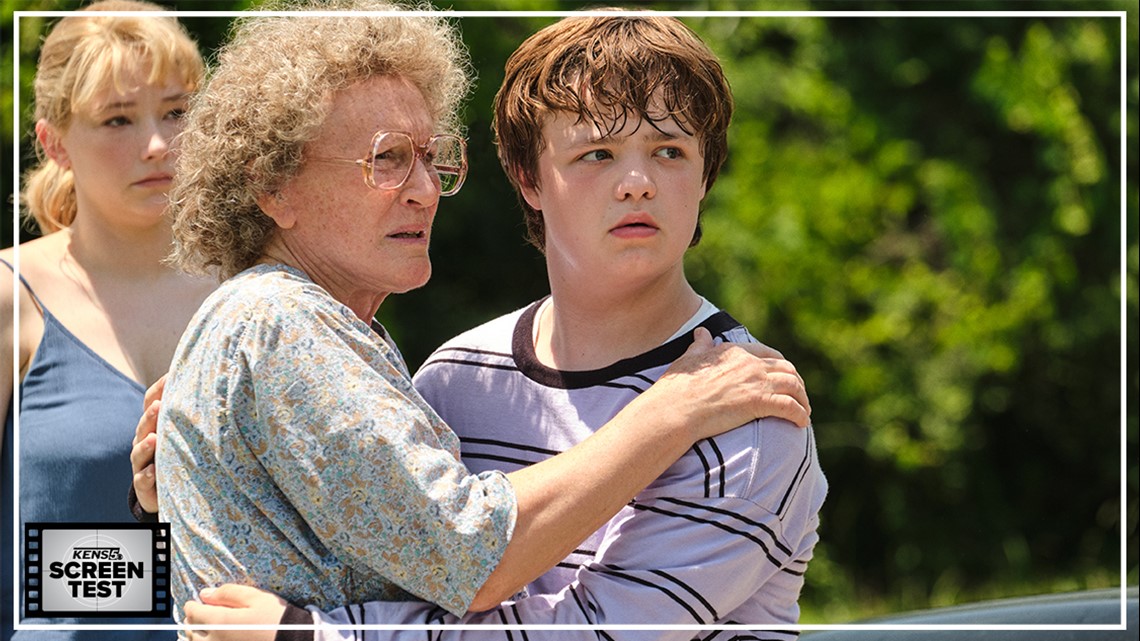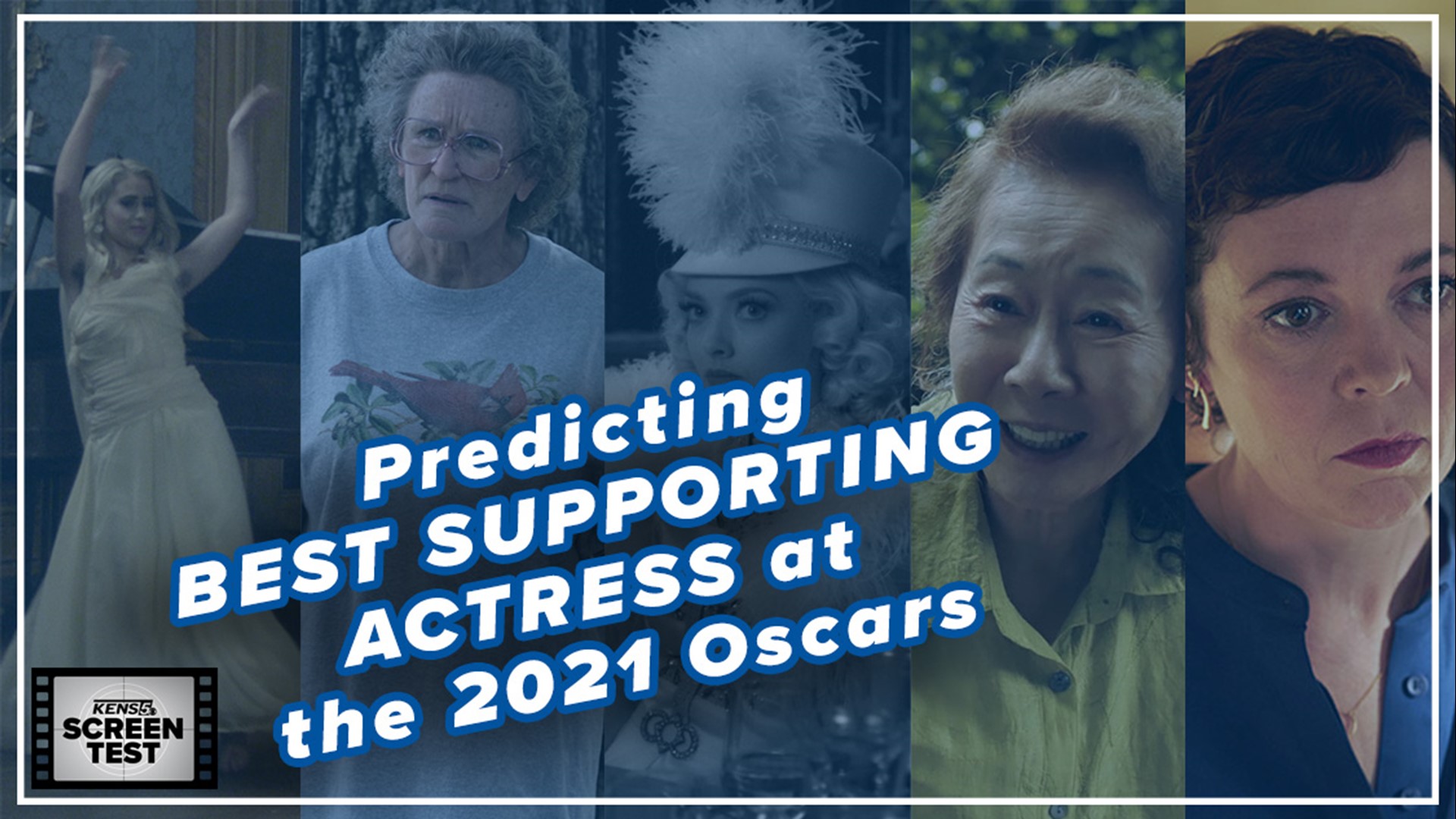“All you do is yell at me!” cries the frustrated child protagonist late in “Hillbilly Elegy,” and by this point in the miscalculated Ron Howard-directed drama about generational and cultural reckoning, it’s tempting to throw our hands up in the air and accuse the movie itself of doing the same thing. The ability to overcome is a theme that’s entrenched in this rough-hewn story from the moment an opening voiceover waxes poetic about the elusiveness of the American Dream, and while it’s a soft-spoken declaration compared to the fiery domestic outbursts that are to come (and come, and come), it’s still no less guttural than the blunt and banal methods by which that sentiment will continue to be reinforced. “Hillbilly Elegy” both begins and ends in a place of emotional rawness, which may be something to appreciate about this diorama of addiction, economic stasis and parent-child connection if its portrayal wasn’t so keen on distracting us from a lack of original insight—mostly through lots and lots of awards-show-calibrated yelling.
Because “Hillbilly Elegy” has a basis in reality, its makers – Howard and scribe Vanessa Taylor and source material author J.D. Vance – perhaps believe they have the luxury of shrugging away any requirement of acknowledging the family-in-turmoil subgenre tropes littered throughout the new Netflix film. It’s an adaptation of Vance’s conversation-sparking 2016 memoir that laments the gritted-teeth foundations of a certain kind of blue-collar Americanism while illuminating his bruised journey as the son of a drug addict mother who aspired to a level of success his family isn’t meant to reach. Or so the implication goes.
That context may play a role in assessing the movie, but it’s overshadowed by a more immediate timeliness—that of its release into the culmination of a four-year period that laid bare the country’s gilded consciousness about who the American Dream truly remains elusive for. Because of this – and, more notably, because it chooses not to have the sociopolitics of the times as its North Star, instead tightly narrowing its scope on one family’s tendency to fall back on abuse – the movie is less an elegy than it is soliloquy. An airing of grievances about the ebb and flow of small-town tragedies major and minor that seems to plague a teenage J.D. (played by Owen Asztalos) when he would rather just watch “Meet the Press” (you know, like any 14-year-old Middletown, Ohio boy).
Those who come into “Hillbilly Elegy” unfamiliar with its source material might wonder why it’s J.D. who seems like the protagonist of this story when the marketing has placed such dominant focus on Glenn Close’s judicious Mamaw and Amy Adams’s ever-troubled Bev, the boy’s grandmother and mother, respectively. In reality (and with all due respect to Haley Bennett’s soulful contributions as J.D.’s sister, Lindsay), this is a three-hander, with J.D., Mamaw and Bev forming a triumvirate of languishing forward momentum and anguished reductivity to stereotype. Oscillating between bad times and halfway-pretend-decent ones, “Hillbilly Elegy” quickly settles into a routine in which the inescapable closeness of the Vance family suddenly becomes kindling for shouting matches and more horrific breakdowns, typically centering on Bev turning on her children before Mamaw restores some semblance of order. It’s the only kind of routine they know, although psychological explanations are scant. If “Hillbilly Elegy” does one thing consistently, it's checking all the boxes. Jobs aren’t held for very long, the pantry is rarely stocked and J.D. – for all the strange hints of aspiration projected from his attraction toward the latest developments out of the Monica Lewinsky scandal and other current affairs – struggles in school.
But those aspirations are realized. It’s one of the movie’s most unusual and self-defeating maneuvers that this isn’t a spoiler. Before we’ve spent much time with young J.D., that round face has been replaced by the handsome square jaw of Gabriel Basso, who’s introduced startlingly early as an older J.D. enrolled in Yale. This timeline is unfolding 14 years later—J.D. has a girlfriend and he’s working on nailing down a summer internship at a law firm. Wudjalookathat: things are looking up for the fella! Which only means it’s high time for Lindsay to call with news from home: Bev has overdosed. And so too, for the first of many times, does the movie, as it starts to bound back and forth in time in a manner that obfuscates more than it enlightens. Back home in Ohio, this older J.D. begins to reckon with having one foot in the past and another on the path forward—which, come to think of it, is an appropriately simple-minded way of describing what is ultimately a simple-minded movie.
If I may, here’s a simple test to determine who may get the most satisfaction out of “Hillbilly Elegy’s” overwrought gestures: J.D. is quick to preach about his clan’s “code.” What virtues might that code center around? One does not need to have sprouted from Appalachian roots to recognize the futility of the movie’s generalizations about a society living right above or at the poverty line; because Hollywood itself has been so enamored with glorifying those struggles, “Hillbilly Elegy” comes off as a byproduct of outdated storytelling priorities, despite what the wider scope of Vance’s memoir may assert. It isn’t that the movie’s suggestions about a time, a place and a mode of living aren’t legible. It’s that they’re anachronistic, let alone uncompelling. (Oh, and the answer was “having your family’s back,” as if it could be anything else. If you wouldn’t have guessed, perhaps the film has other surprises in store.)


The movie chugs along on an IV drip of obvious reconciliations, which is a nicer way of saying “Hillbilly Elegy” thinks a bit of dialogue like "Never had a life where I wasn't thinking about the kids!” is a grand epiphany about parenthood's rocky roads. For something slightly more sophisticated, we can occasionally rely on the character of Mamaw, which Close infuses with a genuinely captivating sense of iron will to juxtapose that convincingly crooked gait and who at least teases more interesting truths about destruction as an inevitable side effect of triumph. It’s an interesting philosophy, although one that’s barely explored. It doesn’t help that Taylor’s screenplay tends to deal in absolutes, especially in regards to Bev’s cycle of bad decisions; the intention may be to portray her as a volatile force, but the result is that Adams’s performance feels like caricature. There may be no better weapon in the seasoned (and, yes, Oscar-less) actress’s arsenal here than that familiar twinkle in her eye that suggests that, OK, maybe this will be the time she dedicates herself to the long-term outlook, and not short-term highs.
I’m tempted to say that what’s sorely missing from the purposeless “Hillbilly Elegy” is a sense of place, but that would suggest a movie with clearly different intentions than the one we got. The story gets some thrust from putting college-age J.D. on a ticking clock—he’s wary of leaving his downtrodden mom alone at a sleazy motel, but he’s also got to drive back to New Haven for an interview that simply can’t be rescheduled. The movie makes a point of emphasizing the ten-hour commute, and it comes off as an eagerness to displace Middletown from, well, wherever J.D. has been studying so hard to get to next. Basso and Adams work double-time to pull off the emotional climax, but it’s only muted by the lingering feeling that “Hillbilly Elegy” is less an attempt at recognition and more a work of self-congratulation—on the part of Vance for escaping, and on the part of the film for managing to excuse itself from the task of showing where it is he’s actually escaping from.
"Hillbilly Elegy" is rated R for language throughout, drug content and some violence. It's streaming on Netflix Tuesday.
Starring: Amy Adams, Glenn Close, Gabriel Basso, Haley Bennett
Directed by Ron Howard
2020
OTHER SCREEN TEST REVIEWS
- ‘Sound of Metal’ Review: An innovative feat of auditory filmmaking, and a career-best Riz Ahmed
- ‘The Twentieth Century’ Review: The most absurdly demented movie of 2020
- ‘Run’ Review: You’ll be way ahead of ‘Searching’ director’s frustratingly neat new thriller
- ‘Ammonite’ Review: Kate Winslet, Saoirse Ronan star in deceptively simple tale of budding seaside love
- ‘The Climb’ Review: An unconventional bromance stings with its comedy, languishes in its drama
- ‘Let Him Go’ Review: A multi-toned neo-Western that veers between soulfulness and explosiveness
- ‘Kindred’ Review: A finely crafted, vaguely familiar thriller that would make Edgar Allen Poe proud
- ‘Come Play’ Review: Techno-boogeyman thriller offers routine scares, roughly drawn sentimentality
- ‘Holidate’ Review: Emma Roberts, Luke Bracey star in Netflix’s sardonic attempt at subverting Hallmark Channel sentimentality

